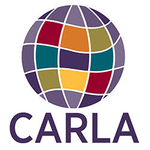
Sixth International Conference on Immersion and Dual Language Education: Connecting Research and Practice Across Contexts
October 20–22, 2016
Hyatt Regency Hotel, Minneapolis, MN, USA
French Immersion and Intercultural Competence: Perspectives of Teachers and Administrators
Abstract/Description for Paper, Discussion, and Laptop Poster presentations
New Brunswick (NB) is Canada’s only officially bilingual province, with English and French as co-official languages. The province has a dual educational system, with separate schools for Anglophone and Francophone children, and a French immersion program with early or late immersion in Anglophone schools.
Couched in the broader discourses of Canada’s Multicultural policy, the cultural outcomes for NB’s French immersion program underscore the importance of learning French in a “pluralist society that accords great importance to its multicultural and multilingual reality” (Ministry of Education, 2005). Understanding the relationship between language and culture is part of this; however, the Ministry states it does not intend for immersion students to “adopt” Francophone culture. The outcomes also emphasize a language-as-asset ideology where bilingualism facilitates expanded job opportunities.
We note some paradoxes within this model. While language acquisition is considered additive, cultural acquisition is subtractive. The relationship between language and culture is limited to appreciation of the Other. Adopting Kramsch’s (2013) view of culture as discourse, we examine these paradoxes from the perspective of administrators and teachers, and consider the implications of an immersion program that disembodies (Kramsch, 2009) language acquisition. We examine administrators’ and teachers’ discourses (Gee, 1990) of language and identity (Kramsch, 2011) and their role in shaping students’ intercultural competence (Bennett, 1993). We draw on Byram’s (1997) Model of Intercultural Competence to examine possible ways forward.
Our analysis regards the following questions:
- What do these administrators’ and teachers’ discourses convey about language and cultural identity and their relationship?
- Does their discourse indicate that the development of students’ intercultural competence is an aim of the immersion program?
Our discussion draws on data from interviews with 9 principals whose schools house French immersion programs in NB, with high level administrators in NB’s Department of Education, and with 17 French immersion teachers.
Program Summary
This presentation, based on interviews with 12 administrators and 17 French immersion (FI) teachers from New Brunswick (NB), examines the cultural outcomes for NB’s FI program and participants’ perspectives on cultural instruction. Though the program could mediate between Canada’s two official linguistic groups, this is not how they describe its role.
Session Type
Paper/Best Practice Session (1 hour)
Context/program model
One-Way Second/Foreign Language Immersion
Immersion/Partner Language(s)
French
Level
Elementary (K-5)
Lead Presenter/Organizer
Kelle Keating Marshall, Pepperdine University
Role/Title
Assistant Professor of French
State (in US) or Country
CA
Co-Presenters
Wendy Bokhorst-Heng, Crandall University
Role/Title
Associate Professor
State (in US) or Country
New Brunswick, Canada